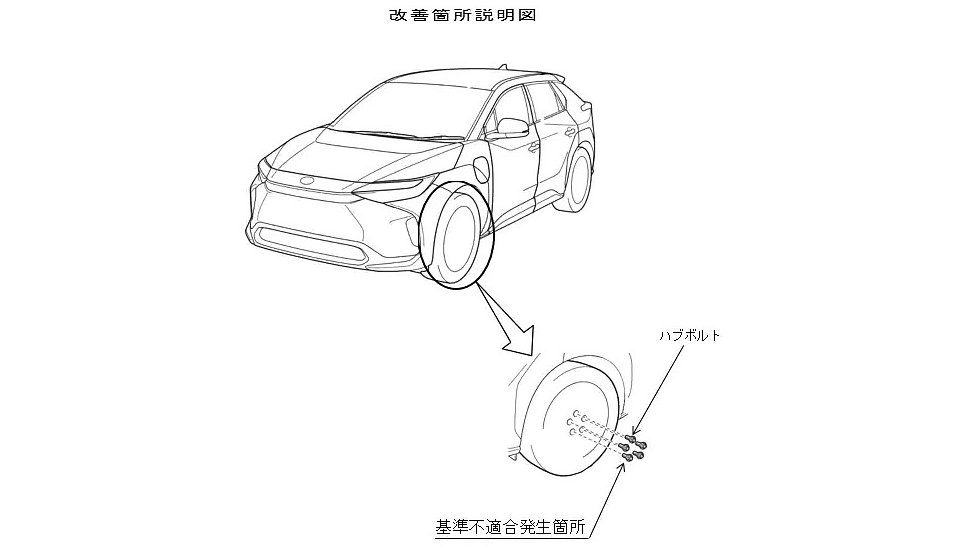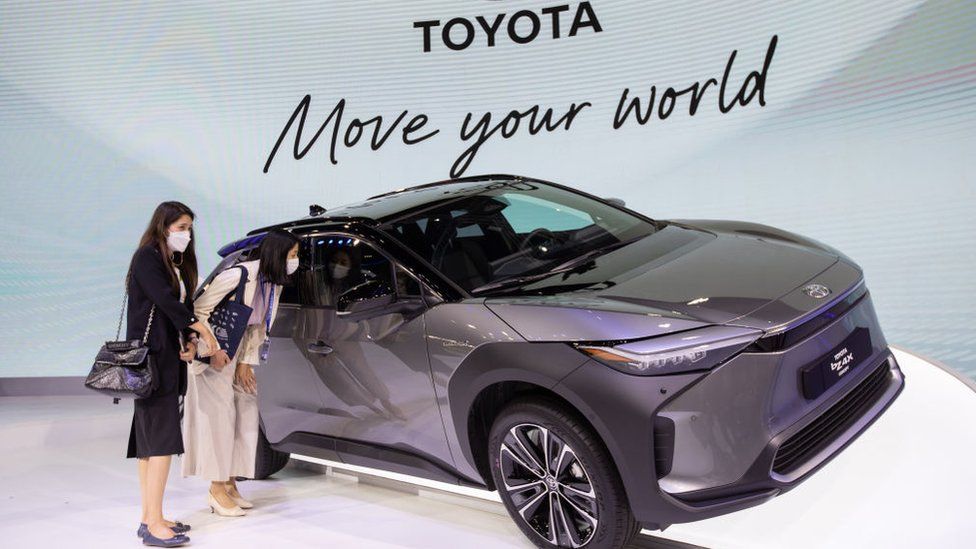Toyota Motor Corporation has recalled approximately 2,700 units of the new electric vehicle (EV) less than three months after it introduced the bZ4X SUV around the globe due to worries that its “loose wheels” may come off. The move is for all cars “in North America, Europe, and the Asia Pacific,” the Japanese automaker stated in a recall notification sent to bZ4X owners on Friday through multiple channels.

A Toyota representative said that during “low-mileage use,” the hub nuts on the wheels of the concerned bZ4X battery EVs might loosen “to the point where the wheel can separate from the vehicle.” The probability of an accident would increase if one of the wheels were to separate from the automobile while it was moving.
Toyota stated that it has informed Japanese safety inspectors about the problem even though the source of the flaw is “still under investigation.” The business also stated that “no one should drive these automobiles until the fix is carried out.” According to Toyota, the recalled cars include approximately 2,200 in Europe, 270 in North America, 110 in Japan, and 60 or so in the rest of Asia. These automobiles were all created between March and June.
Additionally, Subaru’s all-electric Solterra SUV, which was created in partnership with Toyota, has had its 400+ units recalled for the same problem.
Toyota is a fairly late starter in the EV space despite being a long-standing leader in the automotive industry. The bZ4X, the first in Toyota’s ‘bZ’ (beyond Zero) series of battery EVs, was unveiled in early 2021 and is positioned as the company’s flagship EV product in the crossover SUV market. The bZ4X hasn’t exactly lit up the roads, starting at $42,000 (more than Rs 32,86,000) and only being offered in a few locations. Toyota announced the vehicle was only available on lease after its introduction in Japan earlier this year due to ongoing maintenance, residual battery performance, and residual value issues.
Experts claim that because the bZ4X recall occurs early in the lifetime of the vehicle and because the mechanical component in question, rather than the electric motor, is the subject of the flaw, Toyota is likely to address it fast. Toyota may see some setbacks in the global EV battle, where Tesla enjoys a commanding lead, as a result of the recall affecting its first mass-market electric vehicle.
The market-leading Model S car helped the US EV manufacturer establish itself in 2012. The introduction of the mid-size crossover SUV Model X in 2015 solidified Tesla’s position as one of the greatest plug-in vehicles in the world.
The worldwide semiconductor scarcity has added to Toyota’s challenges and prompted it to severely reduce output across models and geographies.
The practise of recalling vehicles is not new; in one of the largest recalls in recent memory, Toyota and other manufacturers warned that Takata Corporation, which produced defective airbags, had produced several million car models since 2013. Takata Corporation later declared bankruptcy. Given its extensive ambitions across the world, Toyota may only see a slight setback as a result of the bZ4X recall.
In order to combine their resources and advance mutual car supply in India, Toyota and Suzuki Motor Corporation signed a memorandum of understanding in 2017. The Japanese industrial giants said on Friday that manufacture of a new SUV created by Suzuki would begin in August at Toyota Kirloskar Motor, Toyota’s India arm. The firms intend to sell the new model to markets outside of India, such as Africa.











